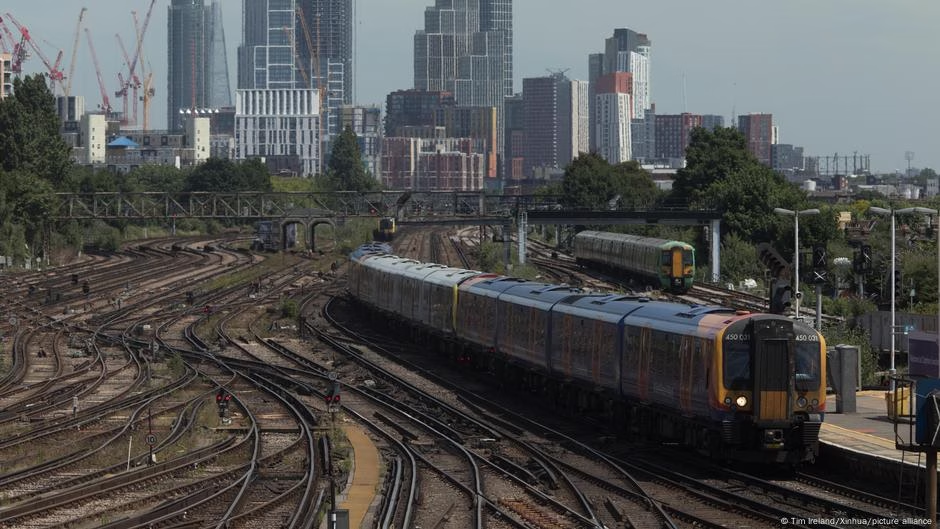This move forms part of the government’s broader plan to renationalize the country’s rail services, a promise made by Prime Minister Keir Starmer upon taking office last year.
“Today signifies a major milestone in our efforts to reform the railways and prioritize passengers,” declared Transport Secretary Heidi Alexander in a statement.
South Western service transitioned into public ownership at 1:59 a.m. local time (0059 GMT), with the first service under the new arrangement being a rail replacement bus service.
When did the UK privatize its railways?
For decades, Britain’s railways have faced criticism due to frequent cancellations, high ticket prices, and confusion regarding service compatibility.
Rail unions, which have organized strikes over pay issues, celebrated the state takeover, with Mick Whelan, general secretary of union Aslef, stating that privatization has been and continues to be ineffective.
In the mid-1990s, the UK privatized its rail services, though the rail network remained in public hands, managed by Network Rail.
Legislation passed in November enabled the return of the 14 rail operators under public control as their contracts expire—with all expected to conclude by 2027 or earlier in cases of poor performance.
Four operators were already brought under public control due to underperformance, initially intended as temporary measures.
Rail nationalization to end decades of ‘fragmentation’
Alexander emphasized that this would rectify “30 years of fragmentation,” noting that the process of change will take time.
The Labour government anticipates that renationalization will lead to savings of up to £150 million ($203 million or €178 million) in compensation fees for rail operators.
Southeastern and Eastern services are scheduled to be nationalized by the end of 2025.
The publicly controlled rail systems in Northern Ireland, Scotland, and Wales are indicative of a potential national trend.
Germany’s rail sector, predominantly owned by the state enterprise Deutsche Bahn, serves as a comparable example.
Edited by: Alex Berry







